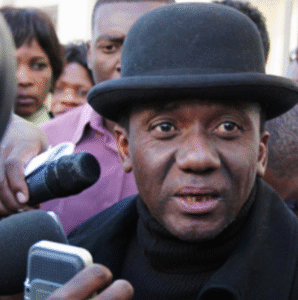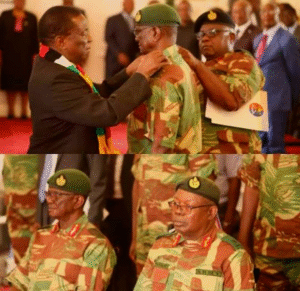ZANU PF’s House on Fire: Mnangagwa Lashes Out Amid Growing Infighting

The deepening factional battles within Zimbabwe’s ruling Zanu PF party have once again come to the fore, with President Emmerson Mnangagwa launching a scathing attack against his internal rivals led by Vice-President Constantino Chiwenga. Speaking at a politburo meeting in Harare, Mnangagwa described his opponents as “wolves in sheep’s clothing,” a statement that exposes the growing fractures within the party.
The faction led by Chiwenga, which enjoys strong backing from elements within the military, has intensified its offensive against Mnangagwa. War veterans, traditionally a strong pillar of Zanu PF, have also turned against the president, openly declaring that he has failed the country and must go. The battle lines are now drawn as Mnangagwa fights to retain control over an increasingly divided party.
In his speech, Mnangagwa made it clear that he sees himself as the legitimate custodian of Zanu PF’s ideology and legacy. He warned against “unfortunate and misplaced narratives” that he believes are meant to divide the party, stressing that true party members should remain loyal at all times. “Loyal members are Zanu PF by day and Zanu PF by night; not merely when it is convenient, or expedient to be members,” he declared.
However, his appeal to party unity rings hollow in the face of worsening economic conditions, growing public discontent, and escalating factional fights. Mnangagwa’s administration has presided over record inflation, widespread corruption, and a deteriorating human rights situation. For many Zimbabweans, the Zanu PF infighting is nothing more than a selfish struggle for power while the nation continues to suffer.
Chiwenga’s camp, which has long harbored ambitions of taking over from Mnangagwa, appears emboldened. Having played a pivotal role in the 2017 coup that ousted Robert Mugabe, Chiwenga and his allies now see Mnangagwa as a liability who has outlived his usefulness. The war veterans’ recent declaration that Mnangagwa must go suggests that the president’s grip on power is slipping.
Mnangagwa’s attempt to use ideological rhetoric to pacify the internal revolt is unlikely to work. His call for party members to adhere to Zanu PF’s history, values, and discipline will do little to address the real issues fueling the conflict. The Chitepo School of Ideology, which Mnangagwa referenced as a tool to instill discipline, is not going to heal the fractures that have already developed.
The growing divisions within Zanu PF further expose the fact that the party is driven not by a collective vision for Zimbabwe’s progress, but by personal ambitions and power struggles. While Mnangagwa and Chiwenga engage in a bitter fight for control, ordinary Zimbabweans continue to face economic hardships, political repression, and a lack of basic services.
As the internal war rages on, one thing is clear: Zanu PF is imploding from within. Whether Mnangagwa survives this battle or is eventually pushed out, the cracks within the ruling party are becoming irreversible. The party that has ruled Zimbabwe through violence, intimidation, and election rigging is now facing its biggest challenge yet—not from the opposition, but from within its own ranks.




